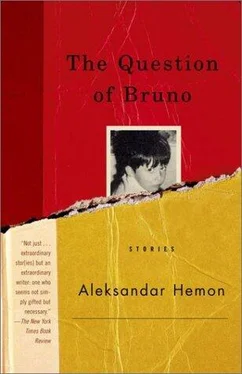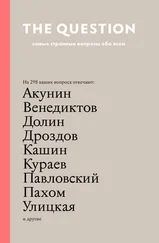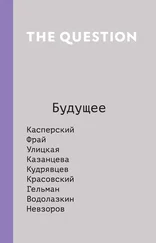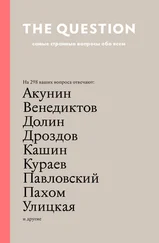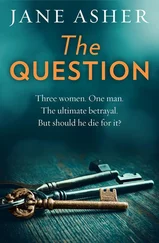Imagine the crushing poverty, the year-long drought and cattle plague, the bone-cracking cold of the 1914 winter, the widespread banditry of hungry, destitute ex-peasants — we all writhed in our seats, fretting the unforeseeable future with our ancestors. Great-grandparents Teodor and Marija, the story went, packed all they had: a few bundles of poorly patched clothing; a beehive, sealed to make the trip; some clay pots and a coal iron; a roll of money they had saved up, which spent the trip in my great-grandmother’s bosom absorbing sweat and entertaining lice. Grandfather, presently dozing off next to me, and Ilyko fought throughout the journey. They had been given a piece of uncultivated land—“this very land”—which was now “the best piece of land in Bosnia,” although, to tell the truth, it produced nothing but retarded corn and shriveled apples. Great-grandfather went to Sarajevo to get the papers for the land on the day the Archduke Franz Ferdinand was killed. He bought an accordion there, “this very accordion,” which was not true, for Uncle Teodor himself crushed the accordion some years ago. Oh, the years of struggling and working from the sun up to the sun down. And then Ilyko went to fight the Bolsheviks—“We all know what happened then, and that is why we are all here now.”
It was the Hemuns who got impatient first, and their impatience quickly became contagious. As Uncle Teodor, entirely carried away, continued talking about Uncle Julius and his twenty-five years in Stalin’s camps, both the Hemuns and the Hemons kept rising, hastening towards the outhouse, pouring slivovitz down their throats, chitchatting, anything but listen to the blind narrator. By the time Uncle Julius got to the Arkhangelsk camp, where he was to be sentenced to death, no one — except me — was listening. My father stood up and said: “Enough, Teodor. You’ll continue later.” But he never did, for the band started playing again and everybody was imbibing elating beverages. Again shoulders were slapped, crushing hugs and smacking kisses generously exchanged, while dancing, even if in slow motion, seemed to be approaching trance. Some of it could be seen on the videotape, but not without effort, because I had one drink too many, and the camera was held by my tremulous hands. Thus the image is shaking and leaping, which, incidentally, works well in showing the ubiquitous giddiness. As the camera was taken away from me, so was my clear-mindedness, and everything became dizzy and dim. Allow me to submit several discontinuous memories — memories of images and sensations that flashed before the helpless mind’s eye, as the mind capsized and sank to the sandy bottom of complete oblivion: the noxious, sour manure stench coming from the pigsty; the howling of the only piglet left alive; the fluttering of fleeting chickens; pungent smoke, coming from moribund pig-roast fires; relentless shuffling and rustle of the gravel on which many feet danced; my aunts and other auntly women trodding the kolomiyka on the gravel; their ankles universally swollen, and their skin-hued stockings descending slowly down their varicose calves; the scent of a pine plank and the prickly coarseness of its surface, as I laid my cheek on it and everything spun, as if I were in a washing machine; my cousin Ivan’s sandaled left foot tap-tap-tapping on the stage, headed by its rotund big toe; the vast fields of cakes and pastries arrayed on the bed (on which my grandmother had expired), meticulously sorted in chocolate and non-chocolate phalanxes; the intense, chewy taste of green onions and pork that washed off my palate, immediately followed by a billow of gastric acid; greasy itchiness around my mouth, adumbrating numerous, putrid pimples; the chained dog, hysterical and aroused, jumping at me, nearly choking himself and coating my hands and face with his drool; the seething warmth of the concrete steps, in the proximity of the dog, where I attempted to regain my seasick consciousness; the needly hay under the revolving roof of the cowshed; my hand holding a long, crooked stick (a Napoleonic sword), beating a nettle throng (Russian soldiers), and my forearms burning and rubicund; truckloads of helmeted soldiers, passing by the house, shooting in the air, and showing us the three-fingered sign, shouting and throwing bottles at chickens; trucks dragging erected cannons, and dark jeeps following them; an unfamiliar cat, caught as it was stealthily jumping on the table strewn with gnawed bones and splinters of meat, staring at me, the pupils stretched to the edges in utter feline disbelief, as if I were not supposed to be there, as if my vomitous existence had not been approved by the being whose approval the cat clearly had.
Then I was sitting down on the grass, leaning against the walnut tree, then closing my eyes and carefully searching for the position in which my head would stop gyrating. I put the tips of my index fingers against my temples, and thus fixed my head, not daring to blink, let alone to move. I heard the din of voices, the garrulous babel, the uproar of guttural excitement, which all eventually ebbed. Then I could hear (although I’m not sure I did) my father’s voice, “wishing to conclude this epic festival of Hemonhood, with words that could not possibly match the greatness of the occasion.” He talked about our ancient roots and “thousands of years of Hemonian diligence,” which helped us survive the biggest catastrophes in human memory. “Do you think it is an accident that our ancestor Alexandre was one of the few to survive the unfathomable defeat of Napoleon’s army? Do you think it is just luck that he progressed through several heart-chilling blizzards to meet the woman of his life, the Eve of the Hemon universe?” No one dared to answer these questions, so he went on and on, and talked about the courage it took to move to Bosnia, “the wild frontier of the Austro-Hungarian empire.” He dwelt for some time, as I was successfully resisting retching, on “the progress that we brought to these parts” with “civilized beekeeping, iron plough and carpentry skills.” We built “our empire out of nothing,” and it was “no accident that our grandfather met with the Archduke before he was assassinated — our stock is heroic and royal.” He told us (although I was barely there) that we should “read the Greeks, the founders of the Western civilization” if we didn’t believe him—“We’re all over the history of literature.” So he proliferated thoughts about the family history, mentioning names that I could not attach to faces anymore — they all merged into my grandfather who was presently and perpetually passing in and out of nothingness. I do not know where our greatness ended — if it indeed ever ended — for I passed out. Then I heard an energetic applause, a choir of hands clapping and clapping, and someone was slapping my face. As I opened my eyes, everything rushed away from me, except the face of my mother, who said: “It seems that the history wore you out. Do you want to vomit?”
My mother led me away, while I mismanaged my steps, from the tumultuous tribal space, holding my right arm above the elbow, and I felt her swollen, arthritic knuckles squeezing my muscle. “The trouble with the Hemons,” she said, “is that they always get much too excited about things they imagine to be real.” I was wobbling, looking at the prows of my feet, imagining the straight line that I had to follow so as not to appear drunk. But then I simply closed my eyes and let my mother steer me around chairs and chickens and buckets and tree stumps and flower beds.
“I made a terrible fool of myself,” I said.
“You’re almost a man now,” she said. “And that is a man’s privilege.”
She made me sit under a shriveled apple tree. Small, wizened apples — not unlike my brain at the moment — hung like earrings from crooked, exhausted branches. My mother sat down by my side and put her arm around me. I wanted to put my head into her lap, but she said: “No, you’ll just get dizzier.”
Читать дальше
